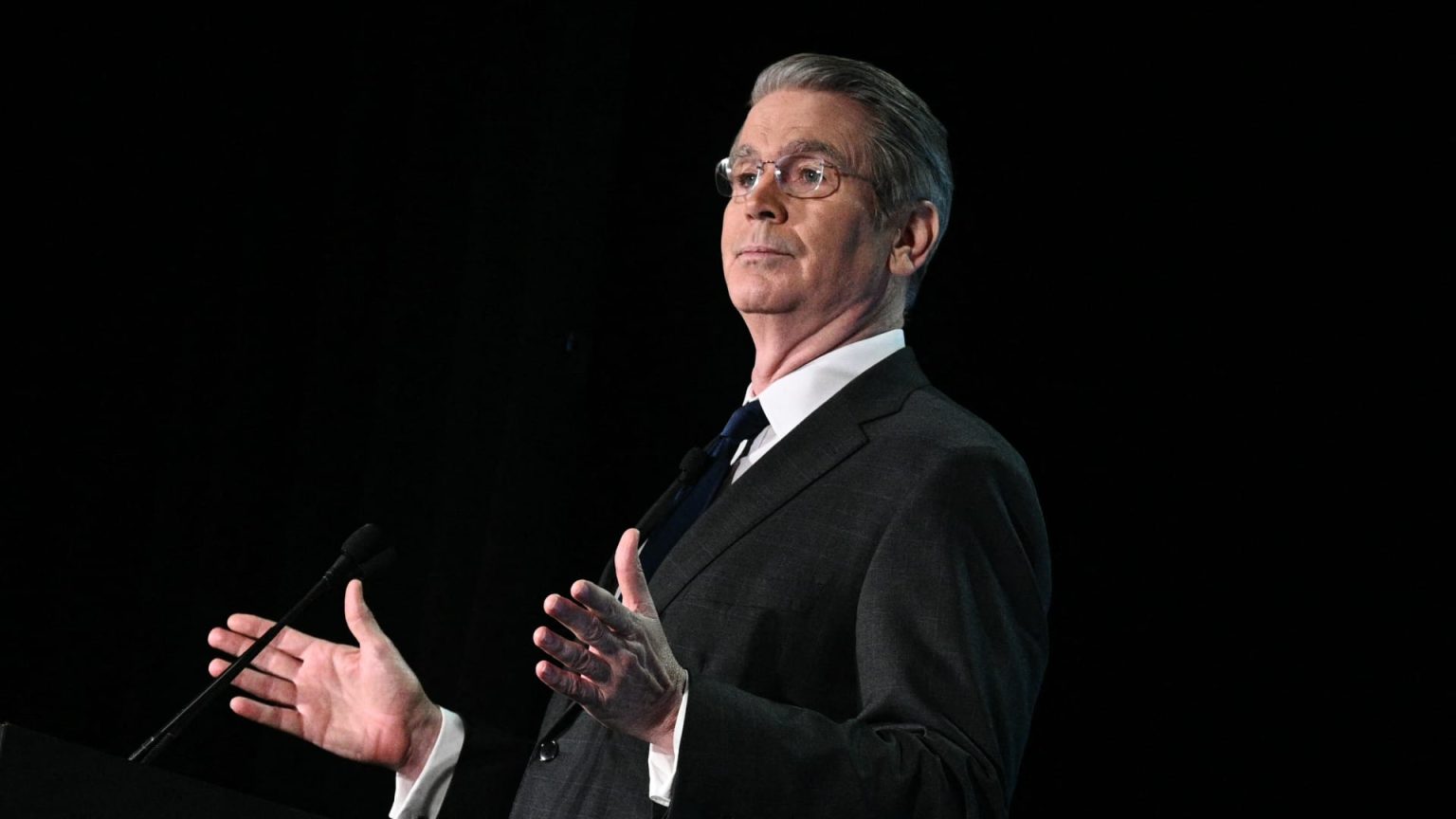In a recent address at the American Bankers Association’s Washington Summit, U.S. Treasury Secretary Scott Bessent emphasized the Trump administration’s commitment to rejuvenate Main Street businesses and empower consumers. This statement comes in the wake of new tariffs imposed by the Trump administration, which have sparked worries about a potential economic recession. While these tariffs have led to significant stock market fluctuations, Bessent reassures that the focus of the administration will be on supporting local businesses and creating jobs, particularly for the working class, rather than solely benefiting wealthier sectors.
| Article Subheadings |
|---|
| 1) Focus on Main Street: A Shift in Economic Strategy |
| 2) Recent Tariffs and Their Economic Implications |
| 3) The Role of Wealth Inequality in Market Responses |
| 4) Perspectives from Industry Leaders |
| 5) Predictions for the Future Economy |
Focus on Main Street: A Shift in Economic Strategy
In his remarks, Scott Bessent highlighted a significant pivot in the economic strategy championed by President Donald Trump. Over the years, the wealth gap between Wall Street and Main Street has been a growing concern. For over four decades, Wall Street has experienced unprecedented growth, which has not fully translated to benefits for average American workers and small businesses, according to Bessent. He stated, “For the next four years, the Trump agenda is focused on Main Street. It’s Main Street’s turn to hire workers.” This indicates a commitment to prioritize local economies and small businesses in upcoming policy decisions.
Recent Tariffs and Their Economic Implications
The context for Bessent’s remarks includes a recent round of tariffs imposed by the Trump administration, which have already begun to ripple through the stock market. Just a week prior to Bessent’s speech, these tariffs contributed to one of the most significant stock market declines since the onset of the COVID-19 pandemic. The S&P 500 index is reported to be nearly 19 percent below its all-time high, hovering close to a 20 percent bear market status. This strikes a chord of concern among economists and investors alike, as they ponder the ramifications such tariffs may have on both corporate profits and overall economic stability.
The Role of Wealth Inequality in Market Responses
Central to the current economic discourse is the discussion surrounding wealth inequality and its impacts on market behaviors. Bessent highlighted that while wealthier individuals have historically owned a significant portion of the stock market, everyday Americans have seen their market participation grow, thanks largely to programs like Individual Retirement Accounts (IRAs) and 401(k)s. This evolution demonstrates that a larger segment of the population is affected by market fluctuations than ever before, raising the stakes for economic policy that traditionally favors those in the upper echelons of income distribution. Such insights are critical as they suggest that any downturns on Wall Street will also reverberate through Main Street, affecting jobs and spending power.
Perspectives from Industry Leaders
Sharing insights parallel to Bessent’s claims, Jamie Dimon, the CEO of JPMorgan Chase, voiced concerns regarding the recession forecasts due to the trade tensions stemming from the tariffs. He expressed a belief that the U.S. economy is likely heading toward a recession due to the ongoing trade conflict. These sentiments resonate within the business community and reflect a broader unease with trade relations and their potential to disrupt economic growth. Dimon’s position as a leading figure in the financial industry amplifies these warnings as firms reassess their operating models and investment strategies.
Predictions for the Future Economy
Looking ahead, Bessent calls for a carefully balanced approach to fiscal policy that prevents recession while supporting business growth. He stated the importance of ensuring that tax cuts do not expire while advocating for economic interventions including full depreciation allowances and removing taxes on certain forms of income like tips and overtime work. His insights propose that the right mix of policies could stabilize the economic landscape and promote sustainable growth. The administration’s strategic focus on fostering a more equitable economic environment may also facilitate an environment conducive to job creation and higher consumer spending, which could mitigate recession fears.
| No. | Key Points |
|---|---|
| 1 | Treasury Secretary Scott Bessent emphasizes a focus on Main Street businesses. |
| 2 | New tariffs have led to significant volatility in the stock market. |
| 3 | The wealth gap between Wall Street and Main Street remains a critical issue. |
| 4 | Industry leaders, including Jamie Dimon, express concerns about a potential recession. |
| 5 | Future economic strategies may include tax reforms and supportive measures for small businesses. |
Summary
The recent discourse led by Secretary Scott Bessent underscores a pivotal moment for the U.S. economy, emphasizing a transition from an exclusive focus on Wall Street to inclusive policies benefiting Main Street. As tariffs introduce uncertainty and increased fears of a recession loom, the strategy to uplift small businesses and the working class emerges as a potential pathway to economic stabilization. The response from industry leaders further emphasizes the critical need for a balanced approach to fiscal policy in the face of fluctuating market conditions, setting the stage for future economic strategies that prioritize equitable growth.
Frequently Asked Questions
Question: What is the main focus of the Trump administration’s current economic strategy?
The Trump administration is currently focusing on invigorating Main Street businesses and supporting consumer empowerment, aiming to create jobs and drive local investment.
Question: How have the new tariffs affected the stock market?
The new tariffs have contributed to significant market volatility, leading to a substantial decline in stock prices and raising concerns about potential recession.
Question: What do industry leaders predict regarding the future U.S. economy?
Industry leaders, including Jamie Dimon, predict that the U.S. economy may be headed for a recession due to ongoing trade battles and market uncertainties.


